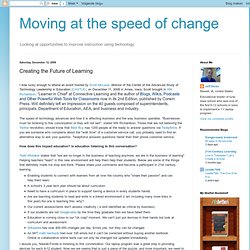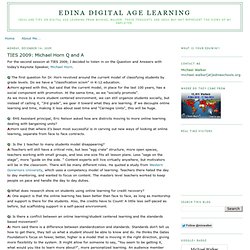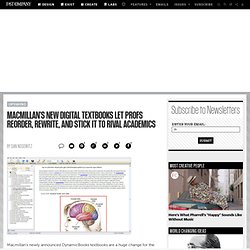

Creating the Future of Learning. I was lucky enough to attend an event hosted by Scott McLeod, director of the Center of the Advanced Study of Technology Leadership in Education (CASTLE), on December 11, 2009 in Ames, Iowa.

Scott brought in Will Richardson, “Learner in Chief” at Connective Learning and the author of Blogs, Wikis, Podcasts and Other Powerful Web Tools for Classrooms now in its 2nd Edition, published by Corwin Press. Will definitely left an impression on the 40 guests composed of superintendents, principals, Department of Education, AEA, and business and industry.
The speed of technology advances and how it is affecting business and the way business operates. "Businesses must be listening to this conversation or they will not last", stated Will Richardson. Those that are not believing the Twitter revolution, should know that Best Buy has 1200 people at the ready to answer questions via Twelpforce. How does this impact education? I assure you, Newell-Fonda is listening to this conversation. TIES 2009: Michael Horn Q and A. :The first question for Dr.

Horn revolved around the current model of classifying students by grade levels. Do we have a "classification scism" in K-12 education. A:Horn agreed with this, but said that the current model, in place for the last 100 years, has a social component with promotion. At the same time, as we "socially promote". As we move to a more student centered environment, we can still organize students socially, but instead of calling it, "3rd grade", we gear it toward what they are learning.
Q: EHS Assistant principal, Eric Nelson asked how are districts moving to more online learning dealing with bargaining units? A:Horn said that where it's been most successful is in carving out new ways of looking at online learning, separate from face to face contracts. Q: Is the 1 teacher to many students model disappearing? Q:What does research show on students using online learning for credit recovery? A: Horn said there is a difference between standardization and standards. Macmillan's New Digital Textbooks Let Profs Reorder, Rewrite, an.
Macmillan's newly announced DynamicBooks textbooks are a huge change for the stodgy, ultra-conservative world of academic writing.

The digital textbooks give professors the power to reorder chapters, insert extra reading, delete irrelevant passages, rewrite individual sentences, and scribble in the margins. Oh, and they'll cost half the price of physical textbooks. The inherent question here is whether professors should actually have the right to alter textbooks as they see fit--but the fact of the matter is, they'll do that anyway.
Today's college classes often require a textbook, of which only half the content is relevant and which costs over a hundred dollars, as well as a coursepack or smattering of disorganized articles to supplement it. These DynamicBooks would allow profs to simply streamline their existing syllabus into a single digital file--essentially, allowing them to do what they already do, and better. [Via The New York Times] Macmillan’s DynamicBooks Lets Professors Rewrite E-Textbooks - N.